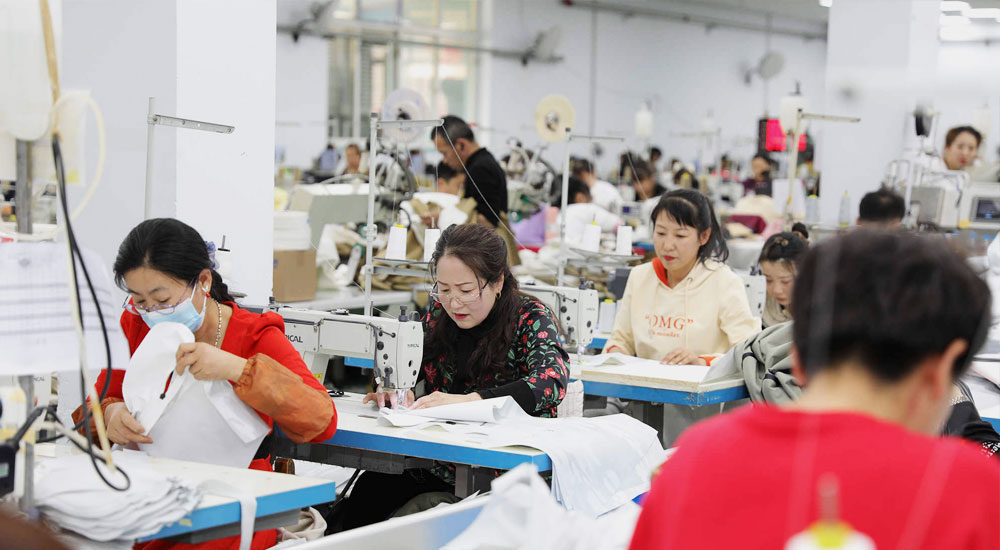

In the minds of ordinary consumers, garment factories are perhaps "all-purpose": fabric goes in, and a wide variety of garments comes out. Based on this perception, some may wonder: For a brand specializing in jackets, couldn't they simply partner with any large-scale garment factory? Why go to all the trouble of searching for a so-called "specialized jacket manufacturer"?
This is precisely the most common misconception among those outside the apparel industry. In reality, modern apparel manufacturing has long entered an era of highly refined production and specialized division of labor. For brands, finding the right, professional production partner is not an option, but a necessity.
Clothing production is far more than simply "cutting" and "sewing." Every functional or fashionable apparel category has a unique and complex production process. Just like a top-notch Japanese restaurant may not necessarily serve authentic Sichuan cuisine, their equipment and culinary expertise are completely different. Let's take jackets as an example to illustrate the professional requirements involved:
Waterproof jackets (outdoor/functional): The core of a jacket lies in the "taping process." Tens of thousands of pinholes in the seams create leaks. Professional manufacturers use high-temperature taping machines to perfectly apply specialized taping strips to each seam, ensuring a completely waterproof seal. This requires a cleanroom, precise temperature control equipment, and experienced operators. A "waterproof jacket" produced by an unprofessional factory may begin to debond and leak after the first rain.
Process video reference: Taping process for waterproof jackets
The key to a jacket's warmth lies in its "filling process." Precisely controlling the amount and uniformity of down in each panel during the high-loss filling process is a key indicator of a manufacturer's performance. Professional filling equipment and working environment minimize down scattering, ensure accurate weight, and thus ensure consistent and up-to-standard thermal insulation.
Process video reference: Down jacket filling process demonstration
Additionally, softshell jackets also require fabric fit and elasticity. It's impossible, and unnecessary, for a single factory to invest heavily in specialized equipment for every product category, expand every type of production facility, and train skilled workers proficient in every process. The costs of space, equipment, and talent associated with such a "large and comprehensive" operation model are prohibitive for any company.
Since the "universal factory" is unrealistic, the optimal solution for jacket brands is to proactively seek out specialized jacket manufacturers. This type of division of labor offers significant advantages:
• Quality Assurance: Specialized jacket manufacturers have extensive experience in this field, and their skilled workers possess a deep understanding of craftsmanship details, mastery of fabric properties, and familiarity with quality control standards that cannot be matched by ordinary factories. This means brands can expect higher-quality, more stable products.
• Efficiency Improvement: Mature production lines mean smooth processes and a skilled team. From sampling to mass production, specialized manufacturers typically offer faster response times and shorter production cycles, enabling brands to more quickly adapt to market changes.
• Cost Optimization: This may sound counterintuitive, but it's true. While specialized manufacturers may not always offer the lowest processing fees per piece, their high yield rate significantly reduces raw material waste and rework costs. Brand owners avoid having to pay for unused excess capacity, thus achieving optimal overall cost control.
In short, for jacket brands, selecting a manufacturer is essentially a matter of precise matching based on expertise. Abandoning the illusion of a "one-size-fits-all" factory and instead seeking and partnering with partners with deep expertise in specialized fields is the cornerstone of stable brand development in this era. When a jacket finally finds its way onto a consumer's body, its crisp fit, seamlessly taped seams, and uniformly warm fleece texture all silently reveal a truth: behind exceptional products lies a highly specialized system of division of labor and collaboration. This is not only the wisdom of the manufacturing industry, but also a business logic that all brands must deeply understand.
•Why Does Your Jacket Brand Need a Dedicated Jacket Manufacturer?
•High Quality Outdoor Clothing Manufacturer
•Guide to Outdoor Hiking Clothing
•How to Choose a Softshell Jacket Manufacturer for Men?
•The Difference Between Hardshell And Softshell Jackets
•What fabric is suitable for making windbreaker?
•What is a windbreaker and its characteristics?